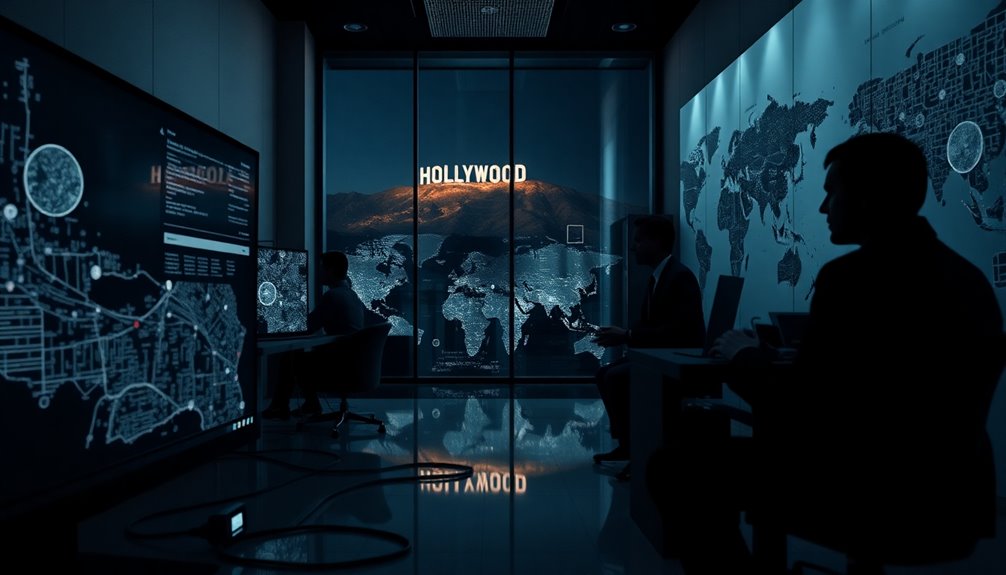
As Hollywood’s digital landscape evolves, British intelligence agencies like GCHQ are closely monitoring its cybersecurity vulnerabilities. In an age where data breaches and intellectual property theft are rampant, GCHQ’s focus on cybersecurity in the entertainment industry makes sense. By employing advanced surveillance techniques, they’re attempting to safeguard sensitive data while also keeping an eye on potential threats.
British intelligence, led by GCHQ, is intensifying efforts to secure Hollywood’s digital assets amid rising cybersecurity threats.
You mightn’t realize just how vulnerable Hollywood is to cyberattacks. With its heavy reliance on digital assets and networks, the industry’s exposure to risks is significant. GCHQ utilizes programs like “Mastering the Internet” and “Global Telecoms Exploitation” to gather intelligence that can help mitigate these threats. Through bulk data collection, including monitoring internet browsing habits, they’re able to map out trends and potential vulnerabilities. For instance, under programs like Optic Nerve, GCHQ has even gathered images from platforms like Yahoo, showcasing their extensive reach.
While GCHQ’s efforts aim to bolster security, there’s a fine line between safeguarding information and infringing on privacy. You might feel uneasy knowing that surveillance programs could monitor communications within the entertainment sector. The use of keystroke logging and face recognition technologies raises ethical concerns about how far intelligence agencies should go in the name of security. Even though GCHQ operates under legal frameworks, the specifics can often be controversial, leading to public criticism and calls for greater oversight.
International cooperation plays a crucial role in these surveillance efforts. GCHQ collaborates with agencies like the NSA to enhance their capabilities. This shared information allows them to develop a more comprehensive understanding of the cybersecurity landscape, but it also raises questions about the privacy of individuals within the entertainment industry. How much data is too much? The ongoing debates surrounding privacy laws, such as GDPR in Europe, highlight the challenges of maintaining a balance between security and personal freedoms.
With the rapid advancements in technology, GCHQ’s surveillance methods continue to evolve. Artificial intelligence tools help analyze vast amounts of data more efficiently, although encrypted data presents ongoing challenges. As you navigate the digital world, it’s essential to recognize that while surveillance might help protect Hollywood from cyber threats, it also invites ethical dilemmas about privacy and the use of surveillance data.
As British intelligence increases its cyber surveillance in Hollywood, the industry must grapple with these complexities.









